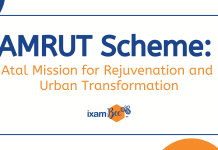Preparing for the IRDAI Phase 2 Exam is a significant milestone for aspirants aiming to secure a position as an Assistant Manager in the Insurance Regulatory and Development Authority of India (IRDAI). The IRDAI AM Exam 2024, known for its rigorous structure and high expectations, demands not only a deep understanding of insurance and regulatory concepts but also an ability to express ideas coherently and effectively in descriptive answers. In the IRDAI Phase 2 Exam, candidates face descriptive questions that test their analytical skills, comprehension, and command over written communication—key areas that are essential for future professionals in the regulatory landscape.
Writing descriptive answers for the IRDAI Phase 2 Exam involves a strategic approach that balances depth with clarity. These questions require more than just knowledge; they demand clear structure, concise articulation of complex concepts, and the ability to convey insights in a well-organized manner. Aspirants must showcase their grasp of regulatory frameworks, insurance policies, risk management strategies, and financial regulations—all within the confines of structured, exam-oriented answers.

To tackle these challenges effectively, candidates should focus on breaking down the questions, formulating structured responses, and emphasizing critical points with clear language. Developing this skill is essential for success in the IRDAI Phase 2 Exam, where the quality of descriptive responses often distinguishes top performers from the rest. A disciplined approach to practice, combined with a good understanding of the expectations of the IRDAI Phase 2 Exam 2024, can help candidates craft impactful answers that demonstrate both knowledge and professionalism. In this blog, we’ll explore effective strategies and tips for writing descriptive answers that can give you a competitive edge in this crucial phase of the examination.
IRDAI AM Exam Notification 2024
The Insurance Regulatory and Development Authority of India (IRDAI) has officially announced its IRDAI Assistant Manager Recruitment Notification for 2024, offering a valuable opportunity for aspiring professionals to join the prestigious insurance sector. Candidates had the chance to apply for the IRDAI Assistant Manager Exam 2024 from August 21, 2024, to September 20, 2024. The official notification provides detailed information on the IRDAI AM eligibility criteria, the application process, exam pattern, and the overall selection procedure.
This year, IRDAI is recruiting a total of 49 Assistant Manager vacancies across various specializations, including Actuarial, Finance, IT, Legal, and Generalist streams. Applicants are encouraged to have a very close look at the notification thoroughly to ensure they meet the necessary qualifications for their chosen specialization. The selection process includes a multi-stage examination, where qualifying in the IRDAI Assistant Manager Exam 2024 is essential for advancing through the recruitment stages.
Reserved category candidates have the option to participate in Pre-Exam Training, designed to aid them in preparing effectively for the upcoming examination. The IRDAI Assistant Manager Admit Card 2024 will be available shortly before the exam date, giving candidates enough time to finalize their preparations. IRDAI’s recruitment offers a golden career opportunity for those interested in the government insurance sector. With competitive salaries, growth potential, and the chance to serve in a respected regulatory organization, these positions are among the most sought-after in India. Be sure to complete your application promptly to secure your place in the IRDAI Assistant Manager 2024 selection process.
IRDAI AM Exam Pattern & Syllabus
The IRDAI Assistant Manager Exam 2024 is highly competitive, making it essential for candidates to have a comprehensive understanding of the IRDAI AM exam pattern and syllabus. Knowing the IRDAI Assistant Manager exam pattern helps aspirants grasp the structure, format, and marking scheme of each phase, while reviewing the syllabus helps identify key topics to focus on. A clear understanding of both aspects ensures efficient time management and targeted preparation. Furthermore, equipping yourself with the right study resources, like essential IRDAI Assistant Manager books, can save time and enhance productivity during preparation. The IRDAI AM Exam consists of three phases and all the important details you need to know has been provided in the table below:
| Phase | Exam Type | No. of Marks | Duration |
| Phase 1 | Objective | 160 marks | 1 hour 30 minutes |
| Phase 2 | Paper 1, Paper 2 & Paper 3 (Descriptive) | 100 marks each | 60 minutes per paper |
| Phase 3 | Personal Interview | ||
Phase 1 is an objective-type exam, focusing on core subjects, while Phase 2 includes three descriptive papers that assess in-depth knowledge. Those who qualify for Phases 1 and 2 proceed to the final Interview stage.
The IRDAI Assistant Manager Prelims (Phase 1) exam is an objective, qualifying examination. While marks obtained here determine eligibility for Phase 2, they are not considered for the interview or final selection. Phase 2 (Mains) is a descriptive examination, distinct from Phase 1, requiring a deeper understanding of key topics. The IRDAI Assistant Manager Exam Pattern 2024, detailed below, highlights this structure. With a syllabus that differs significantly between phases, it is essential to thoroughly review the Phase 2 syllabus to ensure focused preparation. A well-planned study approach will be crucial to success in this competitive exam.
| Phase | Subject | Syllabus |
| Phase 1 | Quantitative Aptitude | Ratio and Proportion, Simplification, Percentage, Average, Time and Work, Speed, Distance and Time, Mixture and Allegations, Percentage, Permutation, and Combination, Data Interpretation, Mensuration, Probability, Set Theory, Number Series, Number Systems, Profit & Loss, Simple Interest & Compound Interest, Surds & Indices, Sequence & Series, Mensuration – Cylinder, Cone, Sphere |
| English Language | Grammar, Vocabulary, Error Spotting, Reading Comprehension, Cloze Test, Para Jumble, Fill in the Blanks, Sentence Correction, Miscellaneous | |
| General Awareness | Current Affairs, Indian Financial System, Indian Banking System, Monetary Plans, National Institution, Banking Terms, General Awareness, Static GK, History of Indian Banking Industry, Regulatory Bodies Monetary & Credit Policies, Budget Basics and Current Union Budget, International Organisation / Financial Institutions, Capital Market & Money Market, Government Schemes Abbreviations and Economic terminologies, Abbreviations and Economic terminologies | |
| Reasoning | Inequality, Coding-Decoding, Syllogism, Machine Input-Output, Data Sufficiency, Seating Arrangement, Logical Reasoning, Floor Puzzle, Scheduling, Verbal Reasoning, Ordering and Ranking, Blood Relations, Direction and Distance, Coded Inequalities, Puzzle Tabulation, Alphanumeric Series | |
| Phase 2 | English | Essay, Precise Writing, Comprehension and Business/Office Correspondence |
| Economic and Social Issues impacting Insurance | Economic Growth, business cycles and Insurance penetration, impact of age structure on economy, application of utility theory to Insurance premium setting, macroeconomic factors including catastrophes and pandemics that may impact insurers and insurance markets Financial markets, Financial Institutions and financial services integration and risks arising from interconnectedness; systemic risk and concentration risk Economic capital and risk based capital requirements, economic impact of risk transfer arrangements including reinsurance, contribution of Insurance sector to sustainable and responsible development of economy, Insurance Investments in Infrastructure sector Economic reforms in India leading to Insurance sector reforms, Insurance regulation – financial and market conduct regulations, functions of IRDAI, role of an Actuary, detariffing in India, motor business and Indian experience, changing Insurance Regulations/Laws and FSLRC. Social structure in India, Insurance in rural and social sectors and obligations of Insurers thereto, Indian Micro-Insurance experience, Social security laws and implementation thereof. RSBY – Health insurance scheme for Below Poverty Line (BPL) families. | |
| Insurance and Management | Insurance History of Indian Insurance, principles of Insurance Risk and uncertainty, pooling and diversification of risk, Indemnity and Insurable interest Legal foundations of Insurance, basics in Group/Health Insurance/Pensions; Intermediation: role in mobilising savings, evolution of various types and Bancassurance in India Functions performed by Insurers: Product design, pricing, distribution, underwriting, claims, Investment and Reinsurance Insurance lines and products : Property-Liability, Life Insurance and Annuities and Health Insurance; Liability risks and Insurance, valuation and Solvency requirements, Specialist Insurance lines in India – Agricultural and Export Credit Guarantee; Reinsurance, GIC of India, obligator sessions and retention of risk within the Country. Management Its nature and scope Management Processes – Planning, Organisation, Staffing, Directing and Controlling; role of a Manager in an Organisation Leadership: The tasks of a leader; leadership styles; leadership theories; A successful leader versus an effective leader Human Resource Development- Concept of HRD; Goals of HRD; Career Planning – Training and Development Performance Appraisal – Potential appraisal and development – feedback and performance counselling – rewards – employee welfare Motivation, Morale and Incentives: Theories of Motivation; How Managers Motivate; Concept of Morale; Factors determining morale; Role of Incentives in Building up Morale Communication: Steps in the Communication Process; Communication Channels; Oral versus Written Communication; Verbal versus non-verbal Communication; upward, downward and lateral communication; Barriers to Communication Role of Information Technology Corporate Governance: Factors affecting Corporate Governance; Mechanisms of Corporate Governance. |
IRDAI AM Descriptive Writing Tips
Now that you have clear picture on what the IRDAI Assistant Manager Exam entitles, you need to have some tips that will prepare you for Phase 2 of the Exam. Take a look at some descriptive answer writing tips below:
Understand the IRDAI AM Exam Requirements
To excel in descriptive writing for theIRDAI Phase 2 Exam, it’s crucial to understand the exam’s requirements and expectations. The Phase 2 descriptive exam aims to assess your ability to analyze, interpret, and express ideas clearly. Familiarize yourself with the topics covered in the syllabus, such as Economic and Social Issues in Insurance and Management, and practice structuring responses concisely. Knowing what evaluators seek will guide your approach and ensure your answers meet the exam’s standards.
Practice Structured Answer Writing
In the IRDAI Phase 2 Exam, structuring your answers is key. Begin with a clear introduction, present your main points in a logical flow, and conclude with a summary or recommendation. Using bullet points or short paragraphs can make complex information more digestible. A structured approach helps maintain coherence and demonstrates your organized thought process. Practice writing within a set word limit to ensure clarity without excessive detail, which is essential for success in the IRDAI AM exam.
Focus on Clarity and Conciseness
The IRDAI AM exam values clarity and conciseness, as lengthy or vague answers can lose impact. Aim to convey your message directly, avoiding unnecessary jargon. Use precise language, keeping explanations straightforward. Short sentences and clear transitions between ideas will make your response easier to follow. Practicing concise writing also improves time management, helping you answer all questions within the given timeframe without compromising on quality.
Back Arguments with Relevant Data
Descriptive questions often require analytical insight, making relevant data invaluable. Support your arguments with factual data or real-world examples related to insurance, risk management, or economic policies. This not only reinforces your points but also shows examiners your in-depth understanding. Use data selectively and explain its significance to your argument, helping to strengthen the validity of your response in the IRDAI AM exam.
Master Time Management
Time management is essential in a descriptive exam with multiple questions. Allocate time to each question based on marks distribution and difficulty. Start with questions you feel most confident about to build momentum. Regular practice under timed conditions with the IRDAI AM Mock Tests and Previous Year Papers will help you manage time effectively, reducing stress during the actual IRDAI AM exam. A well-paced approach ensures that you can give each answer the attention it deserves without rushing through the last sections.
Improve Grammar and Vocabulary
Strong grammar and vocabulary are essential to convey ideas effectively in the IRDAI AM descriptive exam. Grammatical errors can detract from the professionalism of your answer, so review basic grammar rules and use varied sentence structures. A solid vocabulary helps articulate ideas more precisely, particularly for specialized terms related to insurance and finance. Practicing vocabulary related to the syllabus topics can make your answers more impactful and informative.
Review and Revise Your Responses
Always reserve a few minutes for review to catch errors and improve your responses. Revising helps identify areas that need clarification, spot grammatical issues, and ensure all parts of the question are addressed. This final check can enhance the quality of your answer significantly. Make it a habit during practice sessions, as reviewing under exam conditions will become second nature, ultimately leading to a polished, refined response in the IRDAI AM exam.
Use Simple Language for Complex Concepts
In the IRDAI AM descriptive exam, expressing complex ideas in simple language is highly effective. Avoid technical jargon unless it adds value, and explain complex concepts in straightforward terms. Clear explanations show that you truly understand the topic and make your answers accessible to the examiner. Practice simplifying complex topics as part of your preparation to develop the skill of conveying insights in an easy-to-understand format.
Incorporate Real-Life Insurance Examples
Including real-life examples from the insurance and regulatory industry can enrich your answers. Practical examples show the examiner that you not only understand theoretical concepts but also their application in real-world scenarios. Referencing relevant cases, recent regulations, or industry trends strengthens your arguments and demonstrates awareness of current issues impacting the field, a quality that is highly valued in the IRDAI AM exam.
Keep Your Answer Relevant and On-Topic
Staying focused on the question’s requirements is critical in the descriptive exam. Avoid digressing or adding unnecessary information, as this can dilute your answer’s impact. Begin each answer by identifying the key points you need to address, and refer back to these to stay on track. Keeping your responses relevant showcases discipline and precision, making it easier for evaluators to see the clarity of your thought process.
Practice Answering with Word Limits
Practicing within word limits is essential, as descriptive answers require balance between detail and brevity. Set word limits during practice to develop the ability to cover all necessary points concisely. This skill helps you avoid overly long explanations, leaving you time for other questions. Concise, focused answers are easier for evaluators to read and make a strong impression by clearly presenting all required information within the allotted space.
Develop a Clear and Confident Writing Tone
A confident, assertive tone enhances the quality of your answers, making them more convincing. Avoid tentative language such as “maybe” or “perhaps,” and state your points firmly. Practice developing a tone that is authoritative but not overly forceful. This approach will help make your answers sound well-researched and professional, reflecting the knowledge expected of a future Assistant Manager in the IRDAI.
Summing Up
Mastering descriptive answer writing for the IRDAI Phase 2 Exam requires a blend of structured approach, clarity, and relevance. By focusing on concise articulation, supporting points with data, and practicing time management, candidates can present their knowledge effectively. Consistent practice and a disciplined approach to these strategies can significantly improve answer quality, helping aspirants stand out in the competitive IRDAI AM Exam and move closer to their career goals.
At ixamBee, we specialize in providing comprehensive online courses for government exams and online courses for government jobs. Our expertly designed courses for government jobs cater to a wide range of upcoming government exams. Whether you’re preparing for specific courses for government exams or seeking general guidance, ixamBee offers the resources like Beepedia previous year papers, SSC CGL, SSC CHSL, SSC MTS and other mock tests to succeed in exams like RBI Grade B, SEBI Grade A, NABARD Grade A, RRB NTPC, SSC MTS, NIACL Assistant, and more.
Also Read:
Top 5 Reasons to Apply for UIIC AO Exam
How to Write Descriptive Answers in ESI NABARD Grade A Phase 2 Exam 2025?
Some Common Difference Between IRDAI and Other Regulatory Body Exams













